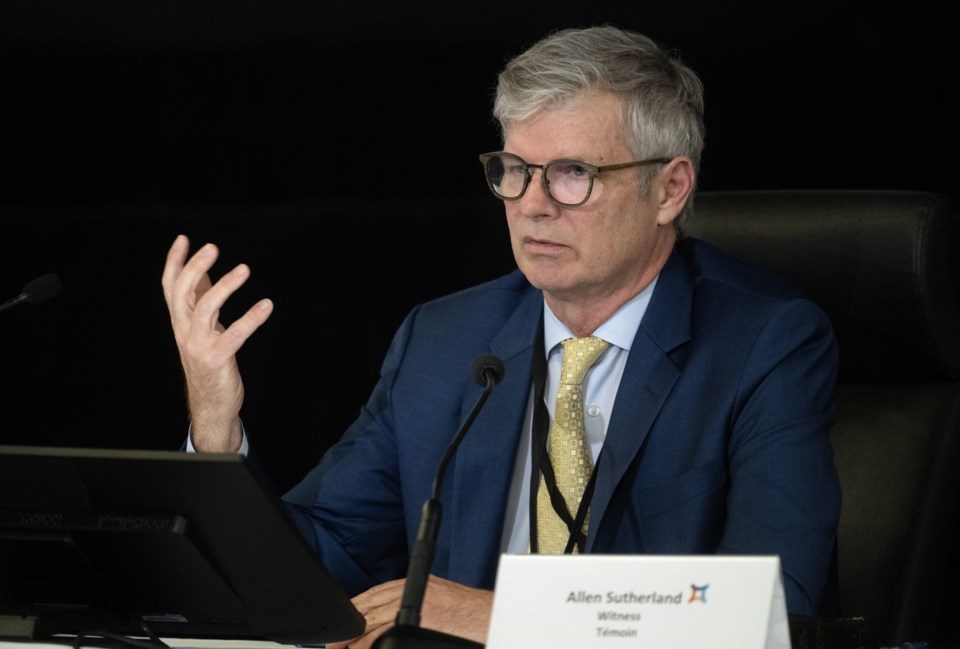OTTAWA — The federal government is mulling new ways to inform the public about possible foreign interference developments during an election campaign, a senior official told a commission of inquiry Thursday.
Under the current system, a panel of five top bureaucrats would issue a public warning if they believed an incident — or an accumulation of incidents — threatened Canada's ability to have a free and fair election.
There was no such announcement concerning the 2019 or 2021 general elections.
The threshold for triggering a public announcement has been set intentionally high, as "stepping into the election space" can be disruptive to a campaign, said Allen Sutherland, assistant secretary to the cabinet for machinery of government and democratic institutions.
Sutherland told the inquiry Thursday that one avenue would be to keep an appropriately high threshold but with a clearer approach to communication in the case of a low-threshold incident.
Officials are looking at how citizens might be told about developments that don't quite reach the current threshold, he said.
That would help inform people of things they ought to know more about, even if the incidents don't rise to the level of threatening the overall integrity of an election.
Sutherland indicated advisers have spoken with Democratic Institutions Minister Dominic LeBlanc on the matter and would continue to do so.
He said officials are mindful that government intervention in an election campaign "could amplify things" by drawing attention to the actions of a foreign actor, or repeated interventions "could lead to a sense that, well, something's not right."
But he stressed the context has evolved in recent years, given heightened awareness of foreign meddling, and that Canadians now expect to be kept better informed.
"So what the government's trying to do is evolve its approaches as society changes, as the threats evolve."
Allegations of foreign interference in the last two general elections prompted calls for the public inquiry that is now underway.
During an April appearance at the inquiry, Sutherland said the panel of five considered warning the public about possible foreign interference in the last general election, but ultimately decided against it.
That decision was made in part because a potential misinformation campaign was likely only to reach the Chinese diaspora, he said.
The panel is composed of the clerk of the Privy Council, the national security adviser, the deputy attorney general and the deputy ministers of public safety and foreign affairs.
Sutherland said Thursday there has been consideration of expanding the panel to include non-government representatives, something cabinet would ultimately decide.
However, he praised the current makeup, saying "we really do have a unique group of senior civil servants who each bring to the table important competencies necessary to exercise the nuanced judgment expected of the panel."
The panel receives information from sources including the Security and Intelligence Threats to Elections Task Force. The task force includes representatives of Canadian Security Intelligence Service, the RCMP, Global Affairs Canada and the Communications Security Establishment, Canada's cyberspy agency.
Sutherland said an element of the federal approach "is not to simply rely on government" to identify instances of possible foreign interference, noting that civil society groups, the media and political parties play important roles.
The panel of five received a briefing earlier this year from the Canadian Digital Media Research Network, which monitors information incidents that have the potential to mislead the public.
Shalene Curtis-Micallef, deputy minister of justice and member of the panel of five, told the inquiry Thursday that hearing from civil society voices is "part of a multi-pronged approach to address foreign interference in this country."
This report by The Canadian Press was first published Sept. 26, 2024.
Jim Bronskill, The Canadian Press

